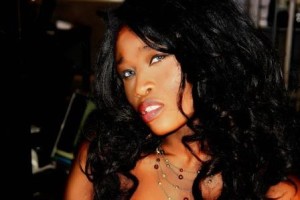- Calls to this hotline are currently being directed to Within Health, Fay or Eating Disorder Solutions
- Representatives are standing by 24/7 to help answer your questions
- All calls are confidential and HIPAA compliant
- There is no obligation or cost to call
- Eating Disorder Hope does not receive any commissions or fees dependent upon which provider you select
- Additional treatment providers are located on our directory or samhsa.gov
Identifying Eating Disorder Issues in the African American Community

It is an unfortunate truth that eating disorders have been successfully shoved into a box. Many people have believed the falsities that are spread about these disorders: that they’re about looking good and being thin, that those who suffer from them are wealthy and self-centered, and that they are predominantly experienced by white women.
Eating Disorders and the African American Community
Research into the world of eating disorders has perpetuated these stereotypes by focusing studies on those exact populations. Studies involving those of lower socioeconomic status or of various races are few and far between. As a result, it is incredibly crucial to dispense what little information does exist about the various populations that experience these disorders, such as the African-American community.
Considering this population shows examples of the numerous ways in which eating disorders can manifest and the many social and psychological aspects that can contribute to their existence.
 The concept of acculturation is important to consider when discussing the African American community and their experiences with eating disorders. This term refers to one adopting the cultural norms of the majority culture as their own, fully assimilating it as part of their identity.
The concept of acculturation is important to consider when discussing the African American community and their experiences with eating disorders. This term refers to one adopting the cultural norms of the majority culture as their own, fully assimilating it as part of their identity.
It has been suggested that this concept applies to African American girls acquiring eating disorders, as they receive intense pressure to conform to the European American ideal of thinness and often resort to severe, disordered, behaviors to obtain it [1]. In addition, studies have shown that higher levels of acculturative stress may result in increased bulimic symptoms and body dissatisfaction [1].
Important Predictor of Eating Disorders
Concerns about being liked and accepted by others have shown to be an important predictor of eating disorders [2]. African American girls are sometimes given the message, from a young age, that they are not good enough or do not fit in because they appear differently than the majority of their peers.
 When one considers that the value of women is placed so heavily on appearance and that young African American girls may be taught to be ashamed of theirs’, it is not surprising that negative behaviors to conform to the ideal may result.
When one considers that the value of women is placed so heavily on appearance and that young African American girls may be taught to be ashamed of theirs’, it is not surprising that negative behaviors to conform to the ideal may result.
Conversely, African American girls often receive pressure from another direction, to appear the opposite of the cultural “ideal.” In the African-American culture, the bodily ideal is not, generally, as thin as European-American culture [1], and obesity is not as heavily stigmatized [1]. Not all disordered eating behaviors involve an overwhelming desire to be thin and not all sufferers appear to be emaciated.
These disorders differ from the stereotypical, but they are no less serious and impact African American women, in particular. African American girls may have a higher risk for binge eating disorder [2] and have higher rates of obesity [1], which acts a contributor to eating disorder development [2]. The occurrence of body dissatisfaction increases as weight increases and acts as another precursor to the development of an eating disorder [2]. It is important to note that a lack of pressure to be thin does not mean the absence of an eating disorder, particularly when taking various ethnicities and cultures into account.
Approaching Interventions
Just as there are unique cultural and societal aspects that may contribute to eating disorders in African Americans, there are unique interventions that can assist with prevention of eating disorders in this community. Studies have shown that cognitive avoidance is highly correlated to the development of eating disorders among African American girls [2]. Put more simply, African American girls are more likely to avoid thinking of their problems and, as a result, are more likely to develop an eating disorder. This information is helpful when discussing prevention efforts, as it points to a contributing factor that can be changed.
 Talking with those in the African American community about their experiences in all settings, whether it be about typical conversation topics or about their experiences with prejudice and acculturation, can open the door to a child learning that discussing their problems and experiences can be helpful to them, and that there is someone who will listen.
Talking with those in the African American community about their experiences in all settings, whether it be about typical conversation topics or about their experiences with prejudice and acculturation, can open the door to a child learning that discussing their problems and experiences can be helpful to them, and that there is someone who will listen.
In addition, these conversations can give way to other important topics that act as preventative, such as discussing how to deal with feelings of cultural acculturation, prejudice, racism, and peer pressure to appear a certain way. Processing their experiences and discussing healthy coping mechanisms can provide a child with the skills they need to overcome the negativity instead of falling into unhealthy coping mechanisms, such as disordered eating behaviors.
Conflicting Body-related Messages
As previously mentioned, the African American community deals with numerous, conflicting, body-related pressures involving conforming to the European American ideal of thinness or the African American cultural ideal of more full-figured bodies.
 As such, it is also important to combat these conflicting messages with emphasis on the middle of the road, teaching girls that positive body image does not involve choosing which side to conform to and achieving that ideal, body positivity means living a healthy lifestyle, taking care of their bodies by eating well enough to fuel themselves, exercising and sleeping a healthy amount, and loving their body for the amazing machine it is, not for its outer appearance.
As such, it is also important to combat these conflicting messages with emphasis on the middle of the road, teaching girls that positive body image does not involve choosing which side to conform to and achieving that ideal, body positivity means living a healthy lifestyle, taking care of their bodies by eating well enough to fuel themselves, exercising and sleeping a healthy amount, and loving their body for the amazing machine it is, not for its outer appearance.
It is important to teach girls to love their bodies because they can help them play sports and run around at recess, because it can process food to give them the energy they need to focus in school and to goof around with their friends. This message is important to send to all girls and can be especially helpful for girls in the African American community who are faced with conflicting messages about what is beautiful. Teaching girls in this community that beauty is not external can quiet the voices telling them to conform to the tangible ideal and amplify the voices focusing on body positivity and true self-love.
 About the Author: Margot Rittenhouse, MS is a therapist who is passionate about providing mental health support to all in need and has worked with clients with substance abuse issues, eating disorders, domestic violence victims and offenders, and severely mentally ill youth. As a freelance writer for Eating Disorder and Addiction Hope and a mentor with MentorConnect, Margot is a passionate eating disorder advocate, committed to de-stigmatizing these illnesses while showing support for those struggling through mentoring, writing, and volunteering. Margot has a Master’s of Science in Clinical Mental Health Counseling from Johns Hopkins University.
About the Author: Margot Rittenhouse, MS is a therapist who is passionate about providing mental health support to all in need and has worked with clients with substance abuse issues, eating disorders, domestic violence victims and offenders, and severely mentally ill youth. As a freelance writer for Eating Disorder and Addiction Hope and a mentor with MentorConnect, Margot is a passionate eating disorder advocate, committed to de-stigmatizing these illnesses while showing support for those struggling through mentoring, writing, and volunteering. Margot has a Master’s of Science in Clinical Mental Health Counseling from Johns Hopkins University.
References:
[1]: Talleyrand, R. M. (2010). Eating disorders in African American girls: Implications for counselors. Journal of Counseling and Development, 88, 319-324.[2]: Vander Wal, J. S., Thomas, N. (2004). Predictors of body image dissatisfaction and disturbed eating attitudes and behaviors in African American and Hispanic girls. Eating Behaviors, 5, 291-301.
The opinions and views of our guest contributors are shared to provide a broad perspective of eating disorders. These are not necessarily the views of Eating Disorder Hope, but an effort to offer discussion of various issues by different concerned individuals.
We at Eating Disorder Hope understand that eating disorders result from a combination of environmental and genetic factors. If you or a loved one are suffering from an eating disorder, please know that there is hope for you, and seek immediate professional help.
Published May 7, 2016
Last Updated & Reviewed By: Jacquelyn Ekern, MS, LPC on March 7, 2019
Published on EatingDisorderHope.com

The EatingDisorderHope.com editorial team comprises experienced writers, editors, and medical reviewers specializing in eating disorders, treatment, and mental and behavioral health.

